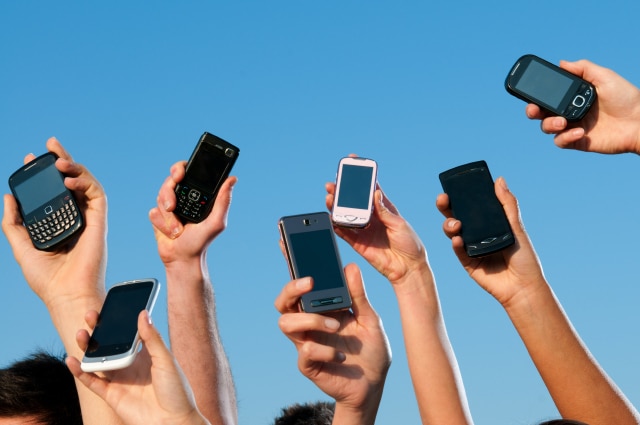The year 1973 was a big one.
No, it was not the year I was born.
It was the year the Watergate scandal was in full swing and when Stevie Wonder topped the charts. It was also the year when the first handheld cellular telephone call was made on April 3, 1973 by Martin Cooper in New York City.
Forty years later, much has changed. We recently conducted a survey that shows how phone habits have evolved since that first call.
It may come as no surprise that mobile phone usage for work continues to rise, with 70 percent of people using mobile phones for work calls. Thirty-five percent of people mainly use their mobile phone, not their desk phone, while at work. And 47 percent of people now use their own personal mobile phones for work in lieu of a company-issued mobile phone. I for one am in this camp – having been cheating on my desk phone with my iPhone for almost a year now.
Also texting has become a more widely accepted form of business communication. Seventy-nine percent of people text for business, with 32 percent actually closing a business deal via text. If a few years ago someone told me that I would be texting as much as I do, even with my team and colleagues at work, I would have said they were ridiculous. Now I text a ridiculous amount.
Interestingly enough, 40 divides mobile natives from those who continue to exhibit pre-mobile behavior.
Sixty percent of people older than 40 still use a traditional home phone while 70 percent of people under 40 use their mobile phone as their home phone.
The survey also showed that nearly 70 percent of people older than 40 still use physical phone books – but 63 percent under 40 never use a phone book.
My husband and I had a home phone and actually refused to give out the number so we didn’t have to deal with picking it up. We finally realized we didn’t actually need one. As a result, my 5-month-old son has spent his entire life in a house with no home phone, no phone book and no answering machine!
So whether you’re a smartphone aficionado or still have pre-mobile era tendencies, it’s hard to deny that the way we work and communicate has changed significantly over the past four decades (which, I’m happy to say, started before I was born). Thanks Martin Cooper – for kicking off one of biggest changes in how humans communicate!
Originally published Apr 03, 2013, updated Aug 07, 2020




